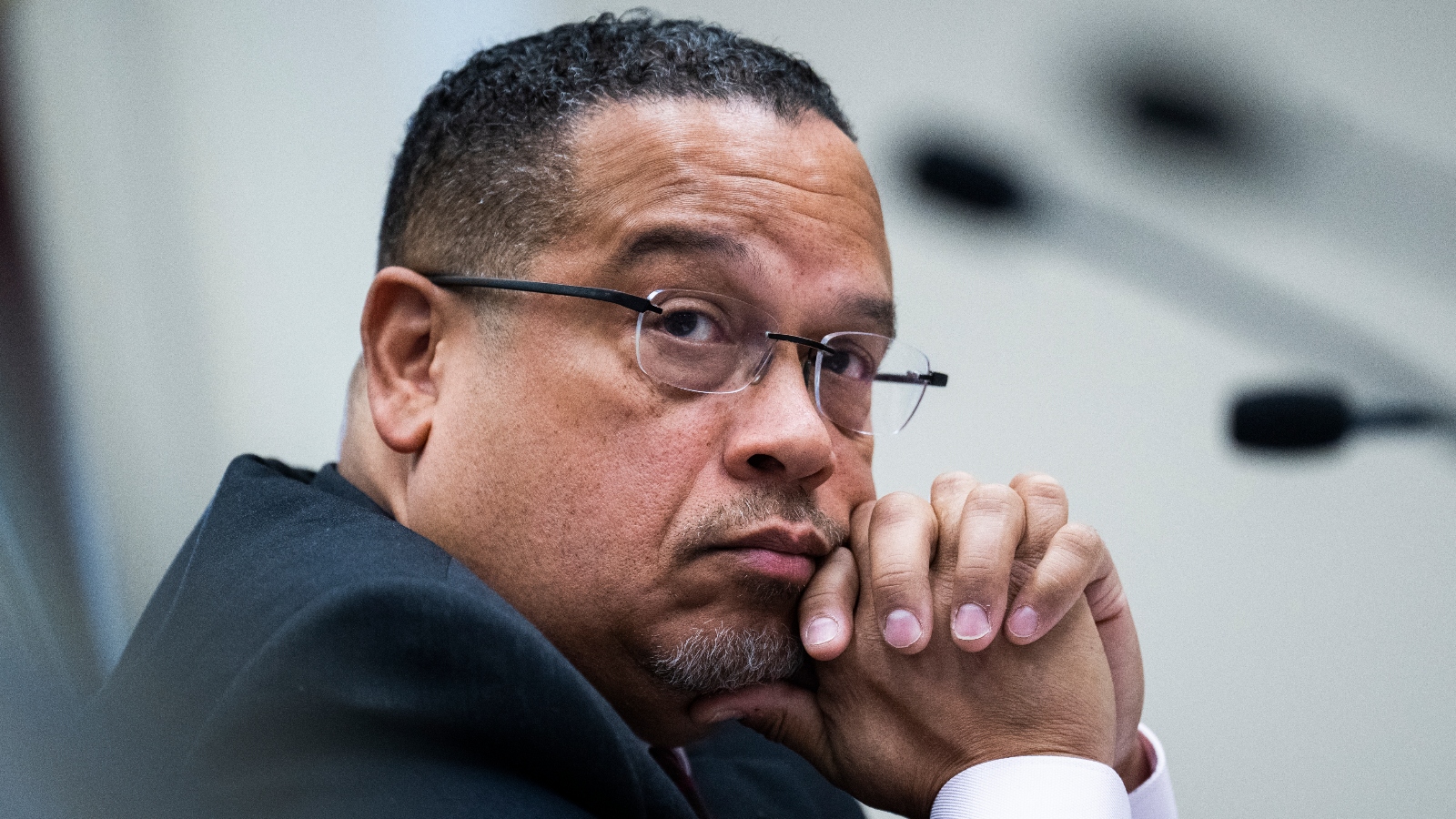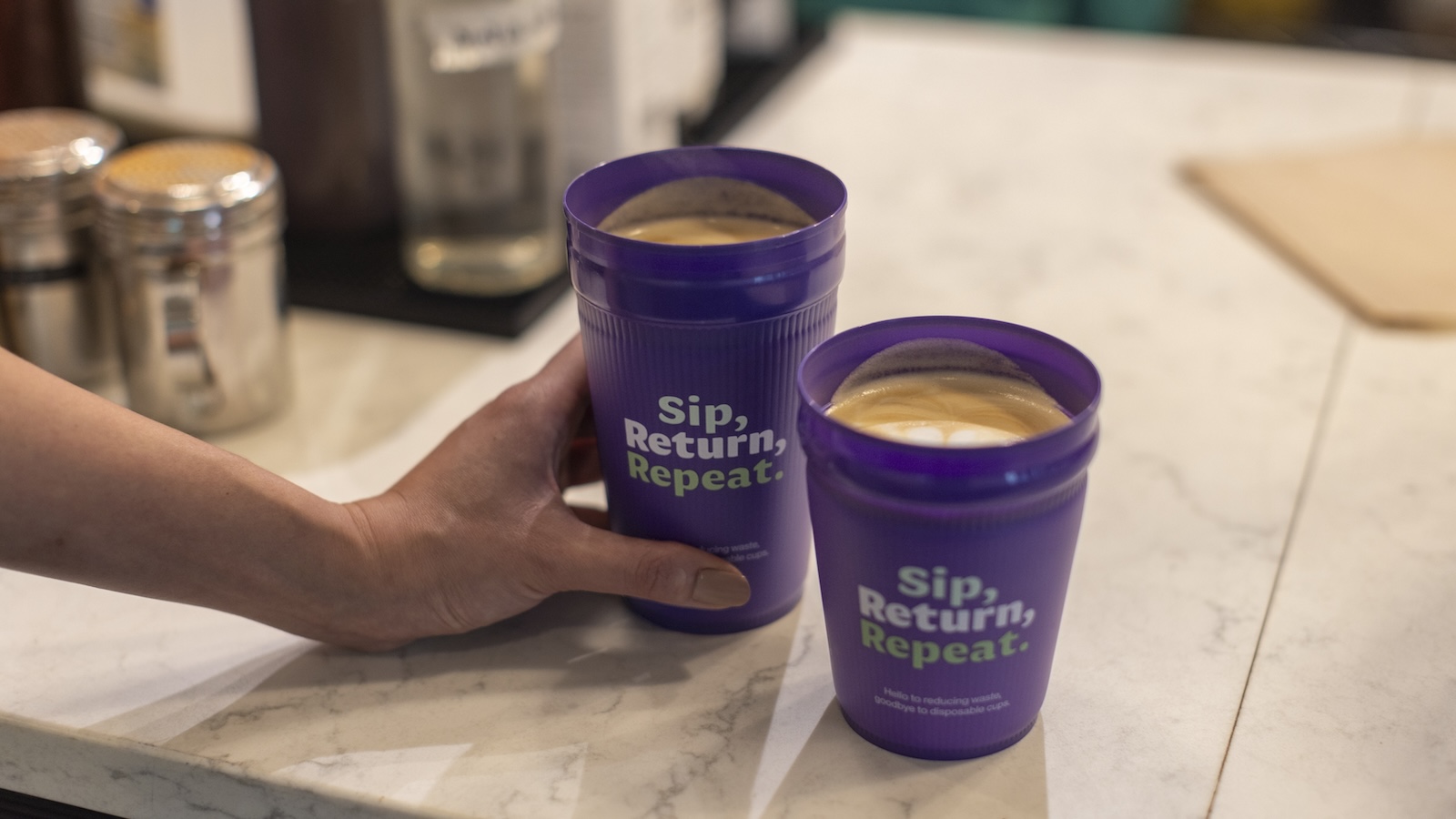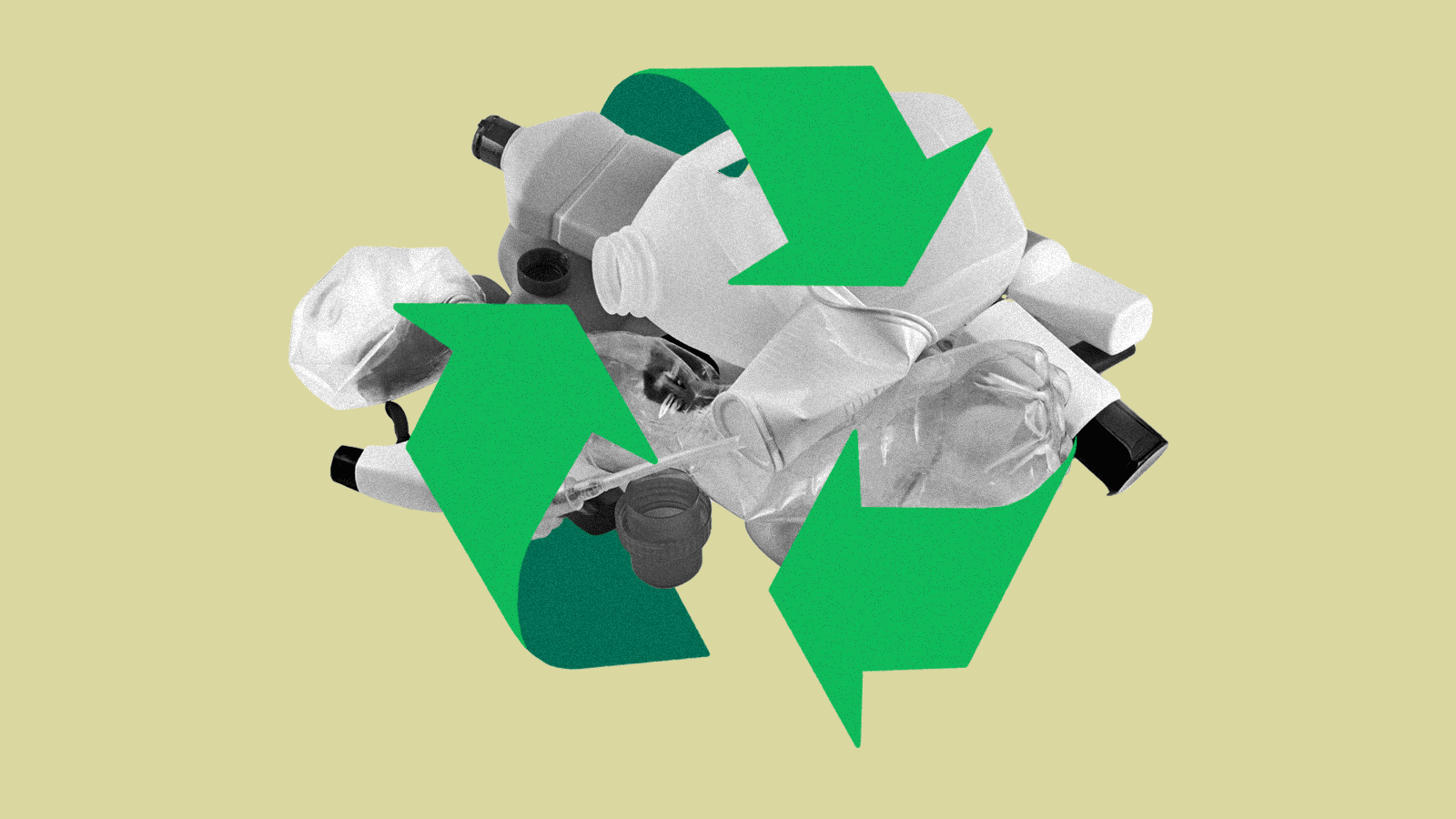Walmart and Reynolds Consumer Products have agreed to stop selling certain plastic bags in Minnesota for two and a half years, after the state’s attorney general, Keith Ellison, argued in court that the companies had falsely marketed them as recyclable.
Reynolds makes the blue or clear 13- and 30-gallon-sized Hefty-brand plastic bags that Ellison targeted in the lawsuit, filed in June 2023 in Ramsey County District Court. The lawsuit also made similar claims against 13-, 30- and 33-gallon bags sold under Walmart’s Great Value brand.
If Walmart or Reynolds resume selling the bags after the moratorium, they must be labeled as nonrecyclable, according to the settlement agreements with Walmart and Reynolds reached on August 1.
The two companies have agreed to pay a collective total of $216,670, which includes 100 percent of the profits they made in selling the bags, the state’s attorney fees, and other monetary relief, according to a press release from Ellison’s office.
“Defendants shall establish and enforce marketing claims legal review processes and provide anti-greenwashing trainings to their marketing teams at least annually,” according to the settlement document.
In a written statement, Reynolds said: “We believe these claims lack merit, but are pleased to put this matter behind us. We remain committed to our sustainability mission to develop innovative products and solutions that simplify daily life and protect the environment.”
A Walmart spokeswoman declined to comment on the settlement.
“Minnesotans have one of the highest recycling rates in America because we love our clean land, air, and water,” Ellison said in the press release.
“I’m pleased that Reynolds and Walmart, who profited from Minnesotans’ good intentions, have agreed to stop marketing so-called ‘recycling’ bags to us that can’t be recycled and will disgorge the profits they made off those bags,” he said. “Any other companies thinking about greenwashing their products to market them deceptively to Minnesotans should know by now that I will not hesitate to hold them accountable under the law.”
The Minnesota lawsuit is among nearly four dozen filed since 2015, mostly by citizens or environmental groups, that target the plastics industry, according to a plastics litigation tracker at The New York University School of Law.
But more recently, attorneys general in Connecticut, Minnesota, and New York have raised the stakes with their own plastics lawsuits, bringing with them considerable legal firepower.
The litigation comes amid a rapidly expanding body of scientific knowledge detailing how burgeoning plastics production and plastic waste damage the planet and threaten public health.
Plastics are made with thousands of chemicals and were never designed to be recycled. Recycling rates in the United States are thought to be less than 10 percent. Bags are among the harder items to recycle, and their film-like and flimsy nature can clog recycling equipment.
Ellison had argued that Walmart’s and Reynolds’ marketing had violated state laws that prohibit false statements in advertising, deceptive environmental marketing, and consumer fraud. The settlement agreement included a provision that it should not be considered an admission of guilt or violation by the defendants.
The lawsuit showed photos of marketing that Ellison claimed were intended to falsely persuade Minnesotans that the bags were meant for use during recycling and could be recycled. Some of them were a blue color associated with some recycling programs and included a declaration that those were “intended for use in municipal recycling programs where applicable,” according to the lawsuit.
Certain clear bags, the lawsuit claimed, were identified as “transparent for quick sorting and curbside identification.” Reynolds also prominently placed the all-caps word “RECYCLING” on the front label of Hefty “Recycling” trash bags, with packaging that showed an image of a clear bag filled with plastic and these words, the lawsuit alleged: “HEFTY RECYCLING BAGS ARE PERFECT FOR ALL YOUR RECYCLING NEEDS.”






